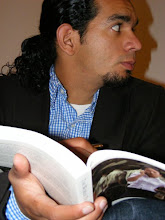For: Hollman Lozano
There are people who only see the world through their established sight, although the cruel reality persistent speaks by itself. Like the National Post columnist Lorne Gunter, who adamantly defended on his column of Monday August 21 called “Playing Favourites” Israel’s violation of the U.N. Resolution.
But for Mr Gunter, the problem is not that Israel had broken the ceasefire. The problem for him is that Kofi Annan had declared himself “deeply concern about the violation of the ceasefire.” This, because according to him, [the Israeli] “commandos were inserted because since the cessation of hostilities Iran and Syria have reopened their supply routes through the Bekaa Valley to Hezbollah” Nonetheless, Israel does not have any right to attack after the cessation of hostilities, not only because under these excuses the conflict could continue endlessly, but also because if there is anybody who should stop the possible actions of Hezbollah, it should not be Israel.
When Israel accepted the 1701 United Nations resolution, it accepted that with all its implications. The possibility that the U.N. could not have enough armed forces in place, or intention to stop Hezbollah because its “muddled, bureaucratic, politically correct international body” do not give authorization to Israel to violate the U.N. resolution.
If Hezbollah, as Mr Gunter calls it “vicious enemy replenish the venom in its tangs and recoils for another strike” against Israel, the last thing that Israel should do is deploy commandos, for it gives reason to all those who had condemned the overused of Israel’s power.
In fact, what Israel should do in case Hezbollah breaks the agreement is to denounce it emphatically to the international community, so that they would take the required actions. But to take these actions before anything happens publicly compromises the will of Israel to follow accepted agreements.
The problem is not that Kofi Annan declared himself “deeply concerned” about the Israeli violation. He is only being the voice of the international community that worried sees how Israel indiscriminately attacks civilians on Lebanon without even respecting its own word. Although for him the issue is that “Mr Annan is really criticizing Israel for taking the actions his organization should be taking, but for which it lacks the troops or the nerve, or both.” Nonetheless, fortunately neither Mr Annan, nor the international community have that vicious sight about reality that does not allow an appropriate understanding of the world.
Thought this conflict the people have not been criticizing Israel because of anti-Semitism as is being labelled any comment against the military actions of Israel. The people with Mr Anan in front of us are criticizing Israel for this persistent abuse of power.
Vancouver, August 21, 2006
hollman.lozano@yahoo.ca
There are people who only see the world through their established sight, although the cruel reality persistent speaks by itself. Like the National Post columnist Lorne Gunter, who adamantly defended on his column of Monday August 21 called “Playing Favourites” Israel’s violation of the U.N. Resolution.
But for Mr Gunter, the problem is not that Israel had broken the ceasefire. The problem for him is that Kofi Annan had declared himself “deeply concern about the violation of the ceasefire.” This, because according to him, [the Israeli] “commandos were inserted because since the cessation of hostilities Iran and Syria have reopened their supply routes through the Bekaa Valley to Hezbollah” Nonetheless, Israel does not have any right to attack after the cessation of hostilities, not only because under these excuses the conflict could continue endlessly, but also because if there is anybody who should stop the possible actions of Hezbollah, it should not be Israel.
When Israel accepted the 1701 United Nations resolution, it accepted that with all its implications. The possibility that the U.N. could not have enough armed forces in place, or intention to stop Hezbollah because its “muddled, bureaucratic, politically correct international body” do not give authorization to Israel to violate the U.N. resolution.
If Hezbollah, as Mr Gunter calls it “vicious enemy replenish the venom in its tangs and recoils for another strike” against Israel, the last thing that Israel should do is deploy commandos, for it gives reason to all those who had condemned the overused of Israel’s power.
In fact, what Israel should do in case Hezbollah breaks the agreement is to denounce it emphatically to the international community, so that they would take the required actions. But to take these actions before anything happens publicly compromises the will of Israel to follow accepted agreements.
The problem is not that Kofi Annan declared himself “deeply concerned” about the Israeli violation. He is only being the voice of the international community that worried sees how Israel indiscriminately attacks civilians on Lebanon without even respecting its own word. Although for him the issue is that “Mr Annan is really criticizing Israel for taking the actions his organization should be taking, but for which it lacks the troops or the nerve, or both.” Nonetheless, fortunately neither Mr Annan, nor the international community have that vicious sight about reality that does not allow an appropriate understanding of the world.
Thought this conflict the people have not been criticizing Israel because of anti-Semitism as is being labelled any comment against the military actions of Israel. The people with Mr Anan in front of us are criticizing Israel for this persistent abuse of power.
Vancouver, August 21, 2006
hollman.lozano@yahoo.ca













